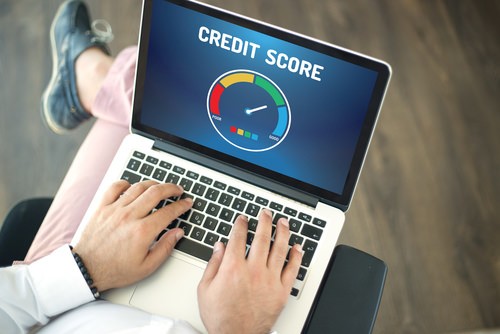Getting a Grip on Your Credit & Financial Health
Credit is an arbitrary idea that affects us all and has a huge impact on our overall financial life. According to the US Debt Clock, the average personal debt per citizen in the US is $56,322. Whether you have good credit or are struggling to take control of your credit, here are some tips to help you navigate this difficult concept.
- CHECK YOUR CREDIT SCORE REGULARLY! There are plenty of services that monitor your credit, but no one knows what you owe or how much you spend better than yourself. Take a peek at it regularly, being certain to look for errors, and see how your spending and paying habits are affecting your score. A great vendor to use regularly is www.freecreditreport.com or www.annualcreditreport.com, which gives you 24/7 access to your Experian report and FICO score. Once or twice a year, you can access all three credit bureau reports (this is important for accuracy).
- Payment history is the most important factor in your credit score—around 35% of score calculation! So be sure to pay your bills on time, and if you can, try to sneak in one extra payment per month. This will increase your average amount paid per month, which increases your score and can help you pay off your debt faster.
- How much of your credit are you using? If you are maxed out all the time, this is not a good sign for creditors and your score most certainly is going to reflect that. A great rule of thumb is to maintain your credit usage under 30% of your available credit.
- Budget! Budget! Budget! – The best way to keep on track with paying bills on time is budgeting. This will allow you to make sure you're able to pay your bills on time, and also help you find areas where you can cut spending (allowing you to pay down debt or get some much needed savings going). It will also assist you in keeping track of other random expenses that come up, i.e. medical bills (these are critical to maintain regular, timely payments on as they will send you to collections quickly for non-payment, negatively affecting your credit scores), unexpected house or car repairs, etc. If this is Greek to you, try using a budgeting program like Mint—it will help get all your data in one place and analyze your spending habits for you.
You can be in control of your debt and your credit—it is important to not allow the guilt or shame surrounding debt to debilitate you into doing nothing. Every little actionable step helps, so take it day-by-day and one step at a time. Before you know it, you will have a strong grip on your credit and your financial health.
About the author
Athena K. Stone has been with Attentive Investment Managers, Inc. since 2003, is an Investment Advisor and the Chief Compliance Officer for the company. Mrs. Stone earned her Chartered Retirement Planning Counselor (CRPC) designation in 2010 from the College for Financial Planning. She received the designation of Accredited Investment Fiduciary (AIF) from Fi360 in 2011. She earned her Bachelor of Arts Degree in Organizational Leadership from Brandman University in 2012 and her Master of Science in Financial Planning and Designation of MPAS (Master Planner Advanced Studies) from the College for Financial Planning in 2018.
By accepting you will be accessing a service provided by a third-party external to https://www.attentiveinv.com/

Comments